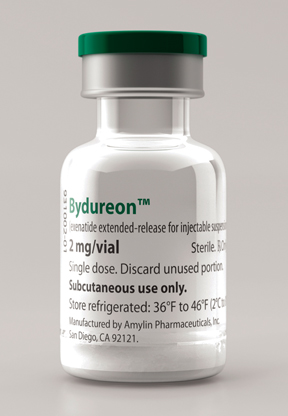AstraZeneca is going in on an acquisition of Amylin with its Onglyza partner Bristol-Myers Squibb.
The companies will pay $7 billion for Amylin, which makes Bydureon, an injectable drug for type 2 diabetes. That figure includes a $5.3 billion purchase price, along with $1.7 billion to retire Amylin’s debt and cover a contractual payment obligation to Eli Lilly.
Bydureon is the once-weekly follow-on to Amylin’s Byetta, which was the first of the GLP-1 agonist class, but iffy sales due to twice-daily dosing and was soon eclipsed by Novo Nordisk’s weekly GLP-1 agonist, Victoza. The Novo Nordisk drug beat Bydureon to market and sales of the Amylin drug, approved in January, have so far disappointed, but BMS and AstraZeneca are betting that their marketing machine can make it a contender.
BMS and AstraZeneca co-market Onglyza, a DPP-4 inhibitor approved in 2009. The companies are also collaborating on dapagliflozin, a SGLT2 inhibitor for which they received a complete response letter in January. While they’ll share equally in profits and losses from the partnership, the arrangement puts BMS in the driver’s seat, though AstraZeneca has reserved the option “to establish equal governance rights over key strategic and financial decisions regarding the collaboration” at the cost of an additional $135 million.
Amylin rejected a $3.5 billion BMS bid in March.
“Amylin’s innovative diabetes portfolio, talented people and state-of-the-art manufacturing facility compelement our longstanding leadership in metabolics,” said BMS CEO Lamberto Andreotti. “We are pleased to be able to strengthen the portfolio we have built to help patients with diabetes by building on the success Amylin has had with its GLP-1 franchise. The acquisition of Amylin by Bristol-Myers Squibb is also a unique way for Bristol-Myers Squibb and AstraZeneca to expand the alliance between the two companies, and it demonstrates Bristol-Myers Squibb’s innovative and targeted approach to partnerships and business development.”







